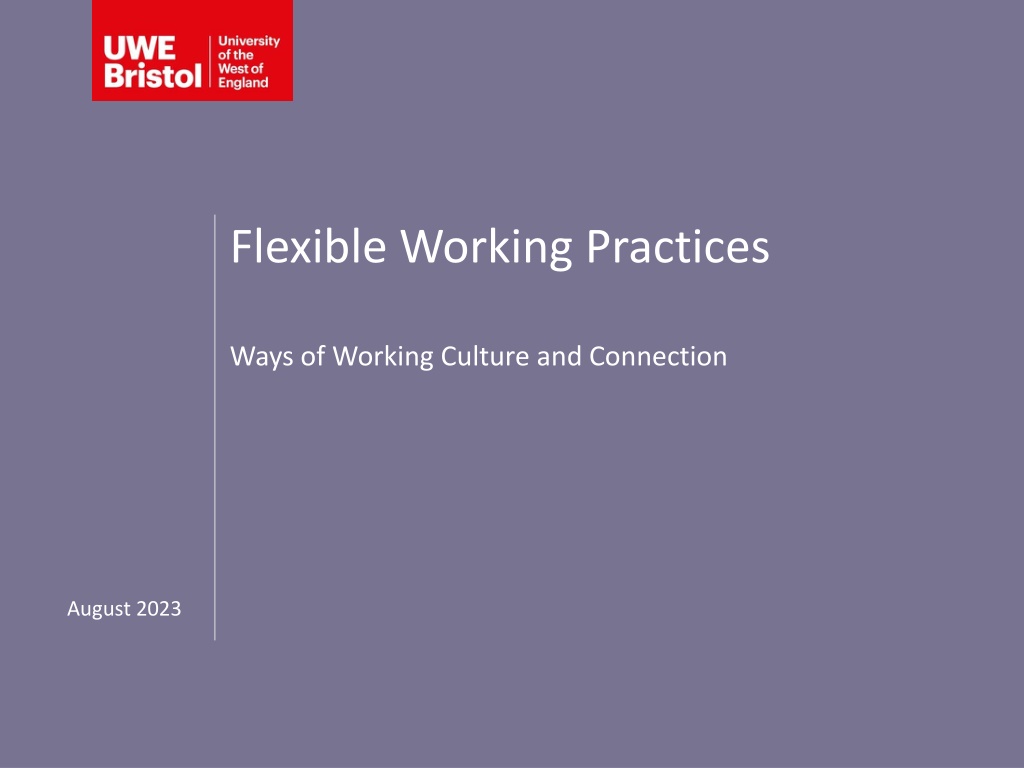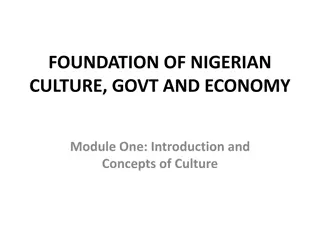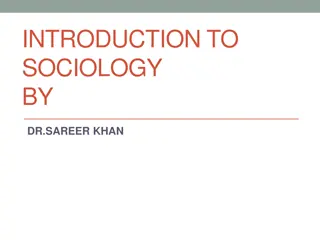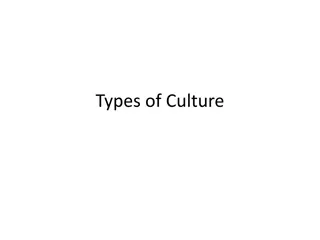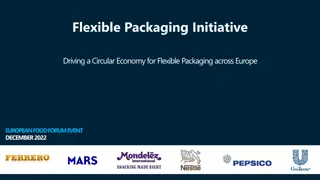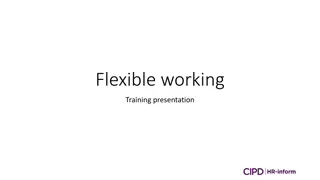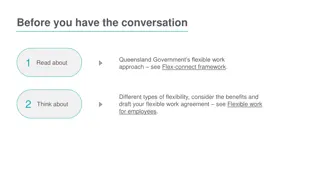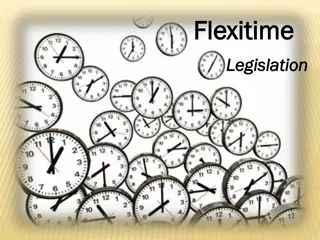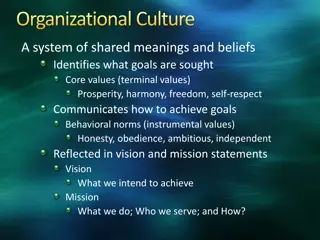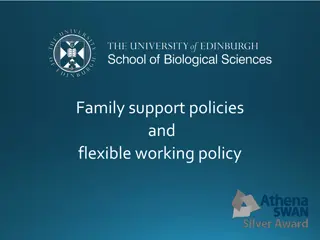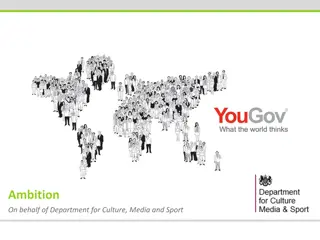Modern Flexible Working Practices for a Dynamic Work Culture
Embracing flexible working principles is key to fostering a dynamic work culture. With a focus on customer-centricity, trust-building, purposeful presence, staying connected, and prioritizing inclusion, organizations can optimize productivity and employee well-being.
Download Presentation

Please find below an Image/Link to download the presentation.
The content on the website is provided AS IS for your information and personal use only. It may not be sold, licensed, or shared on other websites without obtaining consent from the author. Download presentation by click this link. If you encounter any issues during the download, it is possible that the publisher has removed the file from their server.
E N D
Presentation Transcript
Flexible Working Practices Ways of Working Culture and Connection August 2023
1. Customer First We put the customer and the student experience at the heart, ensuring that individuals and teams work in the most effective, efficient, and productive way to support our students, colleagues, and other stakeholders. This means that: Flexible working practices always support the business need. We regularly evaluate flexible working, inviting feedback from the whole team and stakeholders. We continue to evolve and adapt flexible working practices according to the needs of our customers.
2. Trusted to thrive and flourish We trust our people to be accountable for meeting the business needs, and design job roles which enable choice and discretion for teams to decide how, when and where to get tasks done, so that people can perform at their best. This means that: We create psychological safety to encourage open and honest conversations about flexible working between individuals and in teams. We set clear and measurable objectives and expected outputs and outcomes for individuals and teams, with clear timescales. We support and training for managers focussed on defining objectives, building trust, measuring performance, and bringing out the best in people.
3. Purposeful presence We foster good relationships, wellbeing and a sense of belonging within teams by encouraging in-person activities and making campus the main place of work contractually for staff. This means that: We use the time on campus to connect, network, collaborate, create, and develop with colleagues and our campus community. We create opportunities to develop social networks, provide opportunities for knowledge sharing and promote interactions where we can innovate together. We learn from our experiences and continue to improve the on-campus staff experience.
4. Stay connected We embrace the environmental and wellbeing benefits of remote working, make the best use of technology, and make practical arrangements so that we remain connected and contactable when needed. This means that: We consider wider needs than our own in determining the best place to work in terms of productivity, collaboration, and support work life balance. We live in the UK and within a distance that we are able to commute to campus, so we are able to work on campus when required. We ensure that caring arrangements are in place during the hours of work. Remote working abroad is not allowed to ensure the University is compliant with insurance, pension provision and data protection.
5. Prioritise inclusion We guard against any potential adverse impacts of flexible working on the lived experience of particular groups, ensuring we listen to different perspectives and act on their feedback. This means that: We promote inclusivity, social cohesion, and equality in working together. We use flexible working to support people s wellbeing and work life balance, in particular for groups such as parents, carers or those with certain protected characteristics such as disabled colleagues. We consider everyone in the team when agreeing flexible working practices, planning meetings, projects and work or social events.
6. Skills for the future We continue to look ahead to the future, enhancing our technology and developing our staff to be prepared for new ways of working. This means that: We ensure managers have the skills to support staff, to be honest, transparent and collaborate to build relationships. We support all staff to enhance their digital capability, to take the initiative, and encourage ongoing personal responsibility for identifying opportunities for development and growth. We ensure that all new starters start well - they are welcomed and feel included.
7. Attractive and competitive We design our future workforce so that we can attract and retain the best talent, regardless of where individuals are working, and ensure that there is equal access for career development and progression. This means that: We look to widen the pool of talented and diverse staff living nationally by designing some roles as predominantly remote where appropriate. We invest in development to ensure we retain talented staff and enable them to progress. We guard against proximity bias (for example offering in-person workers more exciting projects or development opportunities or leaving remote workers out of decision-making and important discussions).
8. Vibrant, connected and welcoming campuses We design working spaces with wellbeing and community at the heart, making the most efficient and effective use of space and technology to foster connections and relationships with one another both in-person and virtually. This means that: We think creatively and innovatively about how we use spaces on campus and how things can be done differently. We develop shared spaces which cater for a wide range of collaboration, confidential conversations and concentration tasks. We promote our campuses as fun and vibrant environments, with sports activity, green spaces and agile pop-up spaces that excite, inspire, motivate and attract students, staff and visitors.
